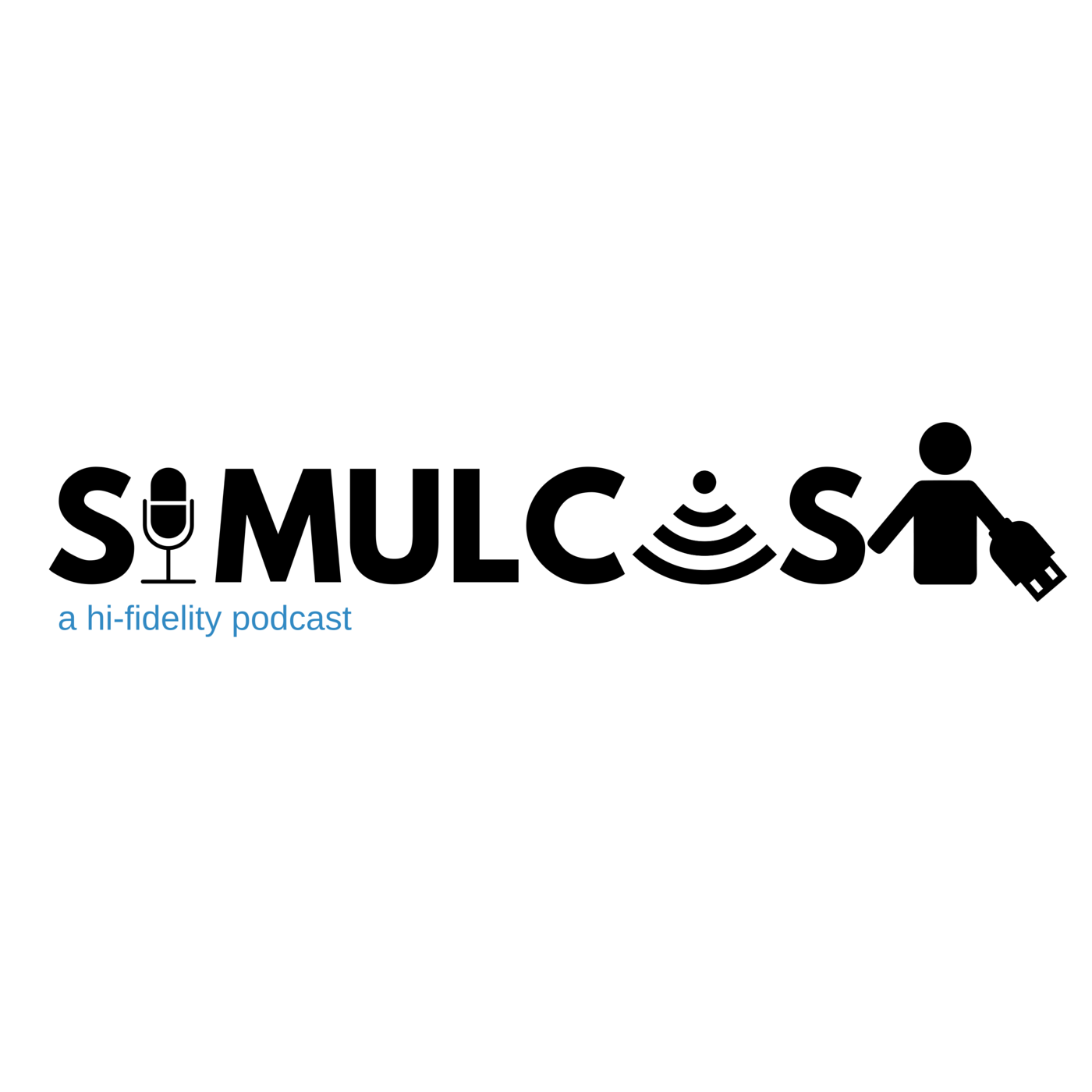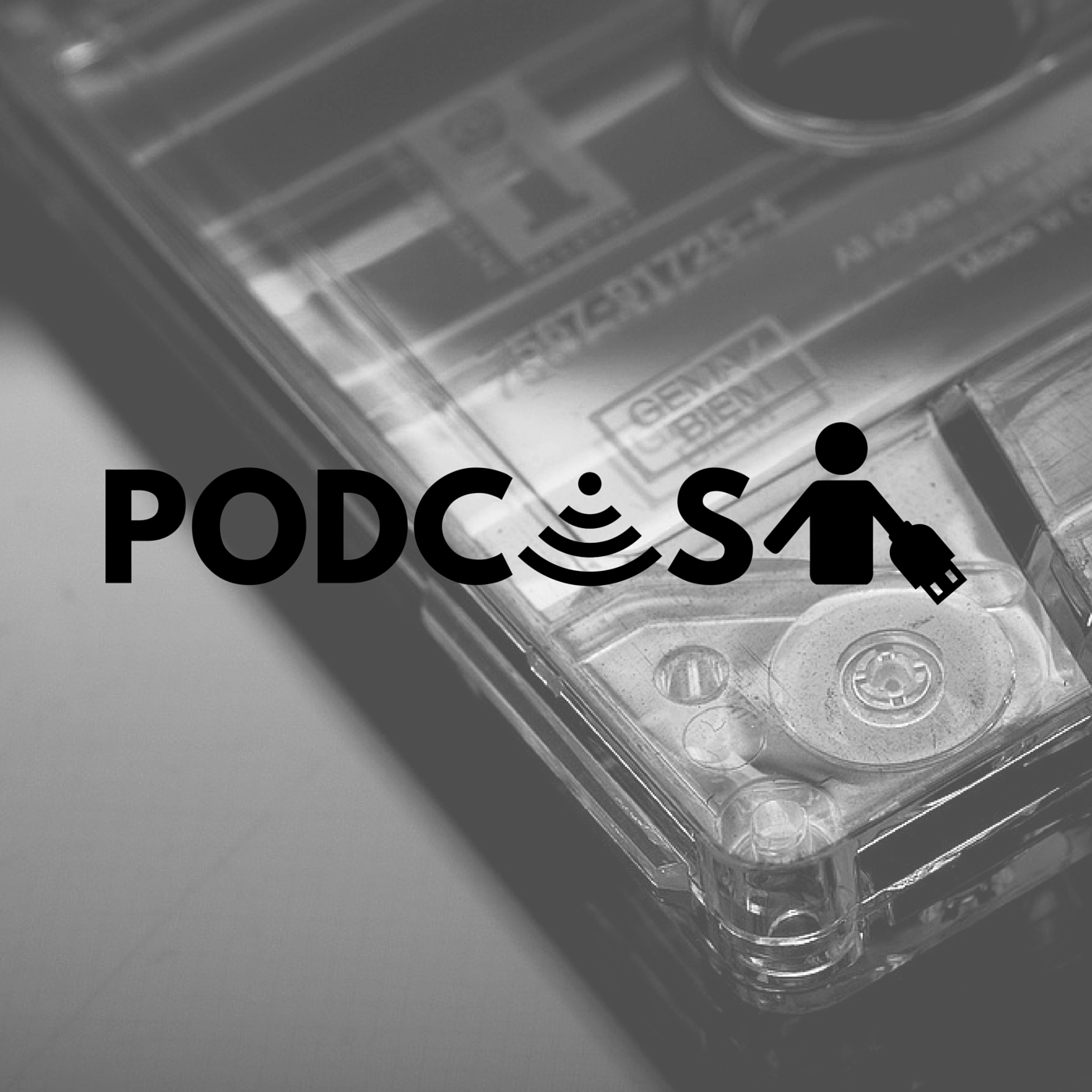
277.6K
Downloads
220
Episodes
A podcast dedicated to the discussion of healthcare simulation. Debunking dogma, demystifying jargon and translating knowledge. Hosted by Victoria Brazil, Jesse Spurr & Ben Symon
A podcast dedicated to the discussion of healthcare simulation. Debunking dogma, demystifying jargon and translating knowledge. Hosted by Victoria Brazil, Jesse Spurr & Ben Symon
Episodes

Tuesday Aug 29, 2017
Advances in Simulation: From Research to Policy, How Much Evidence is Enough?
Tuesday Aug 29, 2017
Tuesday Aug 29, 2017
In the second of our series with Advances in Simulation, we consider Ryan Brydges 2016 editorial - From simulation research to education policy: how much evidence is enough?
In this article he considers the question - What level of evidence is required for translation of healthcare simulation research to policy? or institutional practice ?
Ryan uses the specific example of recent changes to nursing training in the USA as a result of a large simulation study. The editorial considers issues of methodology and ‘tipping points’, and comes from the perspective of a researcher who has authored a number of large scale systematic reviews in healthcare simulation
The study discussed is the NCSBN National Simulation Study: a longitudinal, randomized, controlled study replacing clinical hours with simulation in prelicensure nursing education. By Hayden JK, Smiley RA, Alexander M, Kardong-Edgren S, Jeffries PR in the Journal of Nursing Regulation. 2014;5(2):S3–S40.
In a short period of time this study has led to large scale changes in nursing education whereby up to 50 % of clinical hours in undergraduate nursing training can be replaced by simulation. Note this has also brought with it some clarity in standards around simulation within those programs.
Simulcast was fortunate to have Ryan as our guest author of the editorial, together with Suzan Kardong Edgren, one of the authors of the nursing simulation study, as well as Mary Fey fromm Center for Medical Simulation in Boston as a discussant.
Ryan Brydges (@rbrydges) is a health professions educator from Toronto Canada, and Senior Editor at Advances.
He’s the professor in technology enabled education at St Michaels’s hospital/ University of Toronto, and the research directors at the simulation centre there. He’s been involved in systematic reviews and meta-analysis on large landmark studies in sim and technology enabled learning – research gate profile
Mary Fey is the Associate Director of the Simulation Educator Training program (IMS) within the Centre for Medical Simulation in Boston. She has a nursing and academic background, with a PhD University of Maryland in Baltimore.
Suzan "Suzie" Kardong-Edgren is a professor and director of the RISE Center at the School of Nursing and Health Sciences at Robert Morris University.
The podcast offers a deep dive into the impact of simulation research and the politics of policy and change. We discussed contemporary influences on education more broadly, such as the Carnegie Foundation, and other educational policy changes such as the Competency by Design initiative in Canadian medical training.
However the winner on the day was the discussion itself – a wonderful example of how those with different perspectives – clinical, research, practice and education – can have robust and respectful conversations.
Thanks to our guests and to Advances for another great collaborative effort
Victoria

Wednesday Aug 23, 2017
Simulcast Journal Club Podcast - Ultrasound Special Edition
Wednesday Aug 23, 2017
Wednesday Aug 23, 2017
Resa Lewiss (@ultrasoundREL) joined Simulcast for this month’s journal club – reviewing a paper focused on the use of simulation for assessment of point of care ultrasound (POCUS) skills.
Resa is an emergency physician, self described ‘global soul’, and experienced educator and thought leader in POCUS.
The paper discussed was Collecting Validity Evidence for Simulation-Based Assessment of Point-of-Care Ultrasound Skills by Jensen et al in J Ultrasound Med 2017
The paper concludes that the simulation based assessment process they examined was a valid tool for POCUS skills assessment, promising significant savings where human assessors can be replaced to some extent by the machine.
Resa helped us understand the specific context of POCUS and the background to how these skills have been traditionally assessed. Her review of the use of simulation in ultrasound can be found here.
The process described in the article is instructive for thinking about how to establish validity for other simulation based assessment processes. We conclude that there is much more ‘automated assessment’ to come – with significant opportunities but with a caution to rigorously ‘test the tests’.
Victoria Brazil

Monday Aug 21, 2017
Monday Aug 21, 2017
Michelle Kelly (@KellyKelmich) was our guest on Simulcast for the inaugural Book Review, discussing Healthcare Simulation Education: Evidence Theory and Practice – a recently published textbook for the simulation practitioner.
Editors Debral Nestel, Michelle Kelly, Brian Jolly and Marcus Watson have drawn together a diverse range of authors to produce a comprehensive, but disciplined, review of current theory and practice in healthcare simulation.
Michelle is a simulation academic and practitioner from Curtin University in Perth and past chair of the Australian Society for Simulation in Healthcare (ASSH). Her academic publications and extensive sim experience have made her well placed to edit the book, and to discuss some ‘big picture’ issues in healthcare sim.
In the podcast we discuss highlights from the book, the writing process, simulation terminology, and predictions for the future.

Thursday Aug 03, 2017
Simulcast Journal Club Podcast 7
Thursday Aug 03, 2017
Thursday Aug 03, 2017
In our July journal club podcast Ben and Vic discuss the paper of the month.
Peterson, Dawn Taylor PhD; Watts, Penni I. PhD, RN, CHSE-A; Epps, Chad A. MD; White, Marjorie Lee MD, MPPM, MA, CHSE (2017) “Simulation Faculty Development : A Tiered Approach” Simulation in Healthcare : The Journal of the Society for Simulation in Healthcare. Publish Ahead of Print, POST AUTHOR CORRECTIONS, 18 March 2017.
We then covered some interesting stuff on simulators dying
BMC Medical Education (2017) 17:109 DOI 10.1186/s12909-017-0944-x
And a deep dive into team science
Rosenman et al. Changing Systems Through Effective Teams: A Role for Simulation. Acad Emerg Med. 2017 Jul 20. doi: 10.1111/acem.13260. [Epub ahead of print]
Looking forward to another great discussion

Sunday Jul 23, 2017
Ep. 9 - The Trojan Horse of Simulation
Sunday Jul 23, 2017
Sunday Jul 23, 2017
The dasSMACC (social medial and critical care) conference was recently held in Berlin. Simulation was a theme woven throughout the conference, and we thought a simulcast episode recapping on some of the messages and themes was timely.
Smacc has arguably redefined the way we think about medical conferences – great speakers, great messages, hard core critical care in an engaging format.
This year, simulation activities were embedded in main stage talks, workshops, panel discussions and the ‘Sim Haus’ we previewed in a recent Simulcast episode.
A series of linked main stage talks from Clare Richmond, Chris Hicks and Jon Gatward gave us a framework for thinking about simulation modalities and matching method to objective. Following the journey of a head injured patient, we saw performances by actor Renee Lim, the incredibly realistic manikin made by Lifecast, and how end of life discussions, organ donation, cognitive biases can be addressed using simulation just as well as the action sequences involving airway management of a head injury.
Also on the main stage - Brian Burns opening talk wasn’t about simulation, but rather was a futuristic trauma simulation in which he demonstrated the ways technology might improve our pre-hospital trauma care in the not too distant future, including drone delivered blood products.
Jenny Rudolph gave us a practical insight and skills for dealing with ‘WTF’ moments, by seeking out the underlying frames for behaviour we find annoying or disappointing. She led a whole of audience exercise in resetting our response from unhelpful emotion to curiosity, bringing to life her longstanding work in double loop learning and debriefing using advocacy inquiry.
The interprofessional panel discussion (aka ‘the tribalism panel’) sparked conversations about how simulation can be an agent of culture change, but also how deliberate our strategies need to be in making our educational outcomes truly interprofessional.
Both Jesse and I were involved in the education panel on Day 3 where simulation was again a core theme, especially as it pertains to preparing learners for the future, connecting with quality improvement in hospitals, and integrating into everyday work. Walter Eppich’s work on how to take our debriefing skills into the clinical area through coaching conversations received a lot of attention. As the Twitter moderator, Jesse wonderfully captured some audience questions and responses in this storify.
Pre-conference workshops on Debriefing, Leave the Sim Lab behind and Stress Inoculation were a chance for attendees to deep dive with internationally respected faculty. Jan Schmutz presented his recent work on team reflexivity in the debriefing workshop (an enlightening read, but you will need to concentrate).
The last of those workshops connected with a presmacc meeting in London – the Performance Psychology in Medicine Seminar. This fantastic program connected the worlds of high performance in pre-hospital care, other healthcare, elite sport and on stage. The event highlighted work like Mike Lauria’s Psychological skills to improve emergency care providers performance under stress, and others like Vicki Leblanc.
The Sim Haus was a dedicated physical space within the conference venue, which housed industry displays and ‘meet the experts’ session. There was some fascinating new technology and an atmosphere of sharing sim ideas and challenges.
Where to for more?
Feel free to go back to #dasSMACC and also #simHaus, and of course wait for the talks and podcasts to be released on the smacc website and podcasts over the year.
Next smacc conference is in Sydney February 2019

Wednesday Jul 19, 2017
Advances in Simulation - The Simulcast Collaborative
Wednesday Jul 19, 2017
Wednesday Jul 19, 2017
Simulcast is pleased to announce a collaboration with Advances in Simulation, an open access simulation journal based in Europe. In this interview with Editor in Chief Professor Debra Nestel (@DebraNestel), we profile the content, people and philosophy of the journal.
Debra is already a friend of Simulcast, and wrote the expert commentary for our September 2016 Journal Club.
Our plan is to produce a bi-monthly podcast featuring an article from Advances, with an interview with the author, and editor or another discussant. Our aim is to continue to connect the simulation community across geography, discipline and modality, and to help research to be translated to practice. This series will complement our ongoing Journal Club (which will still feature articles from across the relevant journals) and our usual podcasts.
In this podcast, we take the opportunity to talk about diverse applications in simulation, peer review, open access journals, standards for simulated patients and the ethics of simulation.
A wonderful chance to listen to a friend and mentor to many in the simulation community.
Look out for our podcast with Ryan Bridges and his editorial “From simulation research to education policy: how much evidence is enough?”. Advances in Simulation 20161:22

Tuesday Jul 04, 2017
Simulcast Journal Club Podcast 6
Tuesday Jul 04, 2017
Tuesday Jul 04, 2017
In our June journal club podcast Ben and Vic discuss the paper of the month.
Cheng et al. “Coaching the Debriefer: Peer Coaching to Improve Debriefing Quality in Simulation Programs” Simulation in Healthcare : The Journal of the Society for Simulation in Healthcare. Publish Ahead of Print, POST AUTHOR CORRECTIONS, 20 May 2017
Ben summarised the blog discussion and Walter Eppich’s expert opinion.
We then reviewed some recent papers
Roussin CJ1, Weinstock P. SimZones: An Organizational Innovation for Simulation Programs and Centers. Acad Med. 2017 May 30. doi: 10.1097/ACM.0000000000001746. [Epub ahead of print]
And
Bong et al. The effects of active (hot-seat) versus observer roles during simulation-based training on stress levels and non-technical performance: a randomized trial. Advances in Simulation (2017) 2:7
DOI 10.1186/s41077-017-0040-7 (Open Access)
And Ben introduced next month’s paper on simulation faculty development.
Looking forward to another great discussion
Vic

Saturday Jun 17, 2017
Pause & Discuss - Silver Q Interprofessional Sim Program
Saturday Jun 17, 2017
Saturday Jun 17, 2017
Norma Robinson leads an interprofessional simulation program involving medical students from University of Queensland Rural Clinical School and nursing students from the University of Southern Queensland.
The program is based in Toowoomba but has now been scaled up to include students from many part of rural southern and central Queensland.
Interprofessional education and teamwork training at the student level has been a challenging area, although with some excellent programs, and I think simulation is at least part of the solution.
Norma was kind enough to host me for a visit and I spoke to her afterwards about the program, the motivations for interprofessional education, and how to really build a healthcare workforce to serve a community.

Tuesday Jun 13, 2017
Pause & Discuss - SimHaus at DASSMACC
Tuesday Jun 13, 2017
Tuesday Jun 13, 2017
Sara-Catrin Cook joined me for short chat about all things sim at smacc.
Sara is part of a group who has put together a comprehensive simulation theme woven through the conference, including the SIMHaus – a showcase within the Tempdrom where attendees can meet and talk to other simulation enthusiasts ad experts.
The SimHaus will be physically set up next to the main arena, and Sara tells us what to expect. Simulcast will be there covering the event for those who can’t make it.
See you in Berlin

Monday Jun 05, 2017
Simulation Journal Club Podcast 5
Monday Jun 05, 2017
Monday Jun 05, 2017
In an effort to streamline blog posts, we are continuing a merged Journal Club Podcast and monthly wrap post.
Please read our pdf summary of the May Journal Club article, the month’s discussion and our expert commentary here

In our May journal club podcast Ben and Vic discuss the papers of the month – a duo on Rapid Cycle Deliberate Practice and the approach to debriefing in this format
Structuring feedback and debriefing to achieve mastery learning goals Eppich WJ1, Hunt EA, Duval-Arnould JM, Siddall VJ, Cheng A. Acad Med. 2015;90:00–00. First published online doi: 10.1097/ACM.0000000000000934
Pediatric resident resuscitation skills improve after “Rapid Cycle Deliberate Practice” training Hunt EA, Duval-Arnould JM, Nelson-McMillan KL, Bradshaw JH, Diener-West M, Perretta JS, Shilkofski NA. Resuscitation. 2014 Jul;85(7):945-51. doi: 10.1016/j.resuscitation.2014.02.025. Epub 2014 Mar 4.
We then reviewed some recent papers
- Theilen, Ulf et al.Regular in-situ simulation training of paediatric Medical Emergency Team leads to sustained improvements in hospital response to deteriorating patients, improved outcomes in intensive care and financial savings. Resuscitation , Volume 115 , 61 - 67
A nice segue from Hunt et al – translating outcomes from individual performance improvement to patient and systems level outcomes
- Maicher, Kellen et al. Developing a Conversational Virtual Standardized Patient to Enable Students to Practice History-Taking Skills. Simulation in Healthcare: The Journal of the Society for Simulation in Healthcare: April 2017 - Volume 12 - Issue 2 - p 124–131
One for the technology enthusiasts – using AI/ natural language processing to create patients we can have conversations with. Make sure you watch movies like Ex Machina and Passengers for your background reading
And Ben introduced next month’s paper on peer coaching.
Cheng, Adam et al. “Coaching the Debriefer: Peer Coaching to Improve Debriefing Quality in Simulation Programs” Simulation in Healthcare : The Journal of the Society for Simulation in Healthcare. Publish Ahead of Print, POST AUTHOR CORRECTIONS, 20 May 2017
Looking forward to another great discussion
Vic
